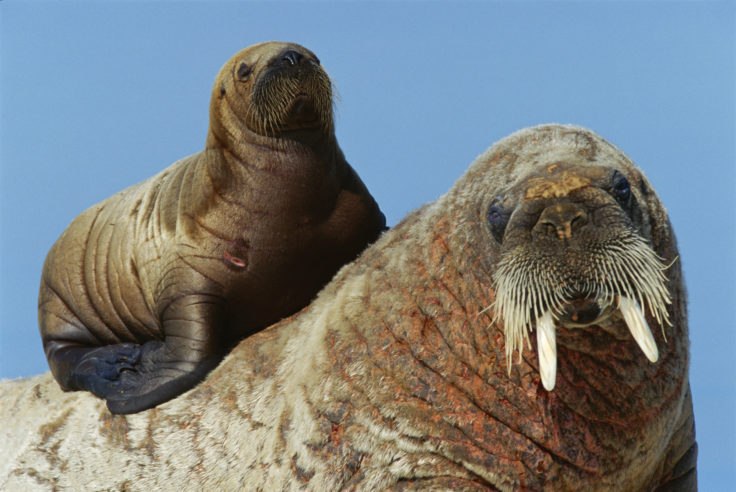Today, 24 November 2022, marks World Walrus Day, and British Antarctic Survey (BAS) and WWF are inviting the British public to become 'walrus detectives' and get involved in their Walrus from Space project to help with vital research to better understand these Arctic mammals.
A new film is unveiled today showing footage from their recent expedition to Svalbard, Norway. Walrus are facing the consequences of the climate crisis and researchers need to know more about how they are affected. 'Walrus detectives' will help contribute to conservation science by searching for and counting walrus in thousands of satellite images taken from space.
Aims of the Walrus from Space project
Over five years the project, in cooperation with scientists from around the Arctic, aims to carry out a whole population census of the Atlantic and Laptev Walrus using satellite imagery and explore what might happen to them in the context of rapid climate change. This will help scientists to better understand the impact of climate change on populations of this iconic species and help safeguard their future.
In July 2022 the Walrus from Space team, made up of scientists and experts from WWF-UK and BAS and supported by the Norwegian Polar Institute, visited a number of locations on the Arctic archipelago of Svalbard, Norway, where the Atlantic walrus population 'haul out' onshore. The team were based at Ny-Ålesund research station, conducting research to help validate future walrus counts from both scientists and the public. Travelling by small boat to different walrus haul-outs, the team gathered new, high-definition drone imagery and ground counts
at the same time that satellite images were captured, in order to calibrate and verify future counts of the Atlantic walrus based on satellite imagery.
Hannah Cubaynes, Research Associate at British Antarctic Survey, travelled to Ny-Alesund for the fieldwork. She said:
"The Arctic is a vast and remote region, making it a difficult place for scientists to work, and we know that walrus can be very easily disturbed by human presence. So that is why we have teamed up with Maxar Technologies, a satellite imagery provider which are capturing images of walrus haulouts, loading them onto the HIVE platform, and we are asking people at home to sign up to help us search for and later count walrus. But you don't have to travel to the ends of the earth, you can do it from the comfort of your own home."

Threats of climate change
Despite a successful trip in calibrating and validating satellite imagery of the walrus, the team also saw first-hand how real the threats of climate change are in Svalbard. The average temperature of the region has risen by about 4°C since the 1970s, which is five times higher than the rest of the planet, consequently making it the fastest warming region on Earth.
Rod Downie, Chief Polar Advisor for WWF-UK and a member of the team on the Svalbard trip, said:
"Walrus are an iconic species of the Arctic and a key species in the Arctic marine ecosystem – and they are of immense cultural significance to Arctic people, yet they are also living on the front line of the climate crisis and their futures are at risk. We know they are increasingly vulnerable to the implications of climate change as the sea ice is literally melting out from underneath them. What we are trying to do is better understand walrus, how they are responding to the climate crisis now and how they might respond in a climate altered future. We are doing this to provide evidence to support the conservation of the species across its range."
With this vital research and the support of the public this World Walrus Day and beyond, scientists hope to discover more about the specific threats to this emblematic Arctic species and help safeguard their future. Aspiring conservationists can help protect the species by going to wwf.org.uk/walrusfromspace where they can register to participate, and then be guided through a training module before participating in the walrus census.
The Walrus From Space project is supported by players of People's Postcode Lottery, who have raised more than £22 million for WWF-UK. Funds are awarded by the Postcode Planet Trust.






